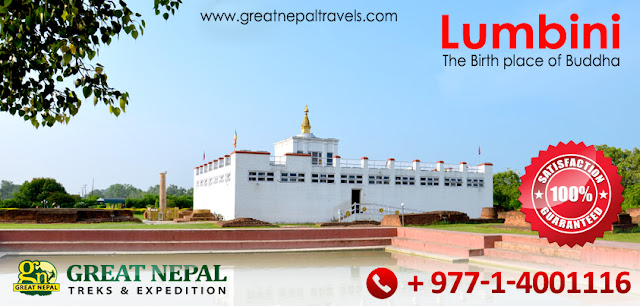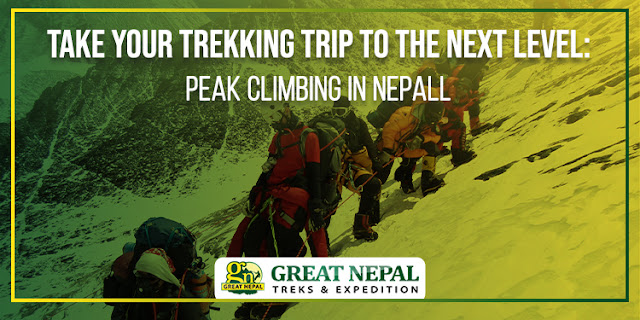Buddhist Tour in Nepal
The world is in search of Buddha.
"Buddha was born in Nepal"
"If you are really a peace lover, step the holy land Lumbini and visit other Buddha's Shrines and make your life holy and get the enlightenment from Buddha"
Siddhartha who
was the son of King Suddhodhan Gautam and queen Maya Devi bor in Lumbini in
garden of Sal trees (Shorea robusta), situated in the beautiful and peaceful
Lumbini zone in Rupandehi district of Nepal. Lumbini is listed by UNESCO as a
world heritage site and birthplace of Gautama Buddha. He was born on full moon
day, and achieved nirvana in the same day and left this world on the same day
of Baishakh Sukla Purnima which is relly amazing. This holy day is celebrated
as Budhha Purnima all over the world.The word Buddha reflacts “Awakened
One”.
Gautam Buddha is also regarded as
Shakyamuni.
What is
Dharmapada?
The Dhammapada
is a versified Buddhist scripture traditionally ascribed to the Buddha himself.
The title, Dhammapada, is a compound term composed of dhamma and pada, each
word having a number of denotations and connotations. Generally, dhamma can
refer to the Buddha's "doctrine" or an "eternal truth" or
"righteousness" or all "phenomena" and, at its root, pada
means "foot" and thus by extension, especially in this context, means
either "path" or "verse" or both. In simple words Dharma is
spiritual living and pada means foot or way, so Dharma Pad is way of living a
spiritual life.
What is
Tripitaka?
It is a
traditional term used for explaning their various types of standard scriptures.
Tripitak traditionally contains three baskets of teachings, a Sutra Pitika , a
Vinaya Pitika and an Abhidharma Pitika. As it has three Pitika it is called
Tripitaka.


What is the
cause of suffering? Why do people suffer?
Buddha has
highlighted 4 noble truths;
1. The real
meaning of life means suffering. There is Suffering, and it is common to all,
no one can escape it.
2. The origin
of suffering is attachment.
We ourselves
are the Cause of Suffering. Apart from those suffering which are natural,
Buddha explains the main cause of suffering is the greed and lust. According to
him the physical attachment is very dangerous. People create suffering from his/her
own greediness. They desire more and more and grow grief of losing them.
3. The
cessation of suffering is attainable.
To end the
suffering, one has to stop doing what causes suffering. identify the reason of
suffering and act upon it yourself.
4. What is the
path to the cessation of suffering.
Narvana is the
end the suffering: enlightenment is the way: Buddha suggested The Noble
Eightfold Path to end suffering and live fulfilled life.
How do people
get rid of suffering?
People secrify
whole life in search of peace to get rid from suffering even they fail to find
out. The only way to get rid of suffering is to live satisfied with what one
has. Don't collect unnecessary materials. Collecting unnecessary things are
collecting grieves and sorrow for future. The state of end of suffering is
called Nirvana. The real meaning of to reach beyond life and death.
What are the
the Noble Eight fold Path described by Buddha?
Gautama Buddha
described 'The Noble Eight fold Path’: the way to the end of suffering.
It is a
practical guideline to ethical and mental development with the goal of freeing
the individual from attachments and delusions. Finally it leads to
understanding
the truth
about life and reality. The eight aspects of the path are highly interdependent
principles and are closely interrelated with each other.
1. Right View
2. Right
Intention
3. Right
Speech
4. Right
Action
5. Right
Livelihood
6. Right
Effort
7. Right
Mindfulness
8. Right
Concentration
All these
things are explained by the mantra:
Buddham
saranam gachhami.
Dharmam
saranam gachhami.
Sangham
saranam gachhami.
Buddha, Dharma
and Sangha, we can follow the way of Buddha.
Buddha's basic
teachings
What is the
importance of Buddha Jayantee or Buddha Purnima Festival?
Buddha Purnima
Festival is celebrated every year in the month of Baishak to commemorate the
birth aniversary, Enlightenment and Mahaparinirvana (Death aniversary) of
Lord Gautam
Buddha, the founder of peace. The birth name of the Gautama Buddha was
Siddhartha Gautama who later became a great Buddha and called as Gautama
Buddha. He
became a great
spiritual teacher and founded Buddhism. Although, the real date of his birth
and death is unknown however, it is estimated by many historians between
563-483 BC. He
was born in the Lumbini, Nepal to the King Shuddhodana (King of Kapilvastu) and
Queen Maya Devi and died at his 80 in the Kushinagar, Uttar Pradesh.
Bodh Gaya,
Lumbini, Kushinagar and Sarnath has become the most important pilgrimage sites
for the Buddhists as these places are deeply attached to the life of Gautama
Buddha. Bodh
Gaya is the place where Gautama Buddha obtained the Enlightenment after many
years of Tapa, Sarnath is the place where he first taught the Dharma, Lumbini
is his birth
place and Kushinagar is death place.
The day of
celebration of Buddha Purnima varies from year to year. According to the
Gregorian calendar, Buddha Purnima falls every year from the end of April to
the
end of May.
Religious people came from all the corners of the world to the Bodh Gaya to get
participated in the Buddha Purnima celebrations. People participate in the
celebration
ceremonies like prayer reciting, lectures on the Gautam Buddha life history,
religious speeches about the Buddhist scriptures, meditation, Lord Buddha
statue worship
and processions.
People came to
the temple and offer holy water to the statue of Buddha and then worship by
offering flowers, incense, candles and fruits. Buddhist people help poor
people by
offering money, food and other necessary goods. Caged animals are freed at this
day to distribute the message of; freeness is the basic rights of each and
every living
creature according to the Buddha.




Comments
Post a Comment